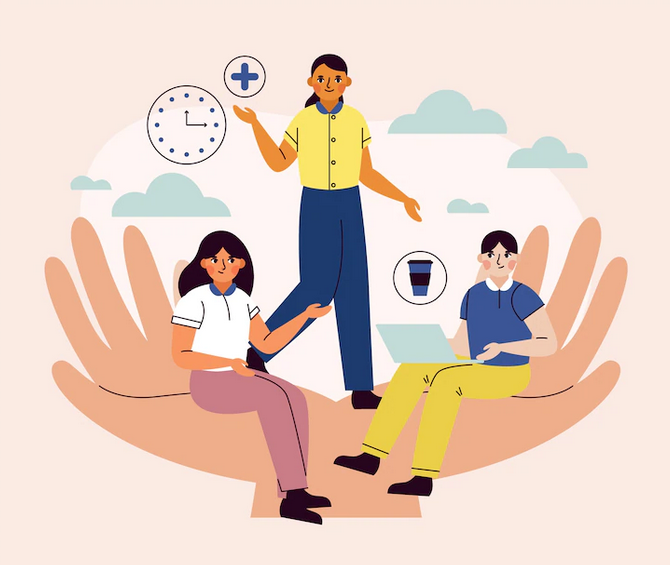While some are still working remotely and others have returned to the office, it seems that stress and anxiety are at an all-time high for everyone. According to a recent survey, employee self-reports of burnout increased from 42 percent pre-COVID-19 to 72 percent in August 2020. Overall, 30 percent of respondents said that maintaining a healthy work-life balance was a major challenge.
Ultimately, how you cope with difficult emotions can affect your mental well-being, the well-being of those around you, your workplace, and your community, according to the United States Centers for Disease Control (CDC). Experiencing stress is completely normal, but if work starts affecting your everyday mood, relationships, or mental health, it might be time to request a mental health day.
Remember: your mental health is just as important as your physical health, and requesting a mental health day shouldn’t be different from asking for a regular sick day. Whether you have a mental health condition or you just need some time away from the office, here’s how to overcome the stigma of asking for the day off.
Acknowledge that you deserve a mental health day.
If you’re hesitant to request the day off for your mental health, remember that your mental and physical health is more important than a day at your job. This acknowledgment will make it easier to communicate your needs and make your intentions clear.
If you’re struggling to convince yourself you deserve the day off, start by naming your stressors.
- Are you feeling overwhelmed by endless appointments with consultants?
- Are you struggling to function because of mental health symptoms?
- Are you experiencing medication side effects?
After figuring out the root cause of your stress, you’ll have a better idea of what to address during your time off.
Consider your workplace leave policies.
Suppose your workplace has 50+ employees and you’re under a federal contract. In that case, federal labor and anti-discrimination laws protect you and prevent your supervisor from penalizing you for taking time off. Depending on your workplace, requesting a mental health day might be as simple as asking for a regular sick day. Before putting your request in, be sure to read up on your rights.
Don’t feel like you need to share everything.
If you’re facing stigma because of your workplace’s attitude toward mental health, don’t feel the need to over-share. Even if you’ve been diagnosed with a mental illness such as clinical depression or OCD, all you need to do is tell your supervisor that you have a personal matter to deal with. With that said, if you feel comfortable sharing why you need the day off, feel free to let your supervisor know.
Remember the day is for you.
After your request is approved, you can spend the day taking care of yourself. If you’re feeling down, consider phoning a family member or engaging in some self-care. If you need to sit on the couch all day, don’t feel guilty about it—but try to avoid spending hours scrolling through social media. Ultimately, the day is for you to refresh and recoup from the stresses of work, and comparing yourself to what you see in social media posts will not do you any good.
Reach out for help if you need it.
Taking care of your mental health is essential at every stage of life—from adolescence to adulthood. And with the events of the past year and the COVID-19 pandemic changing the way we socialize, learn, and work, listening to your mind and body is more important than ever.
If you’re constantly feeling overwhelmed at work, don’t hesitate to reach out for professional care. Sometimes, intense job-related stress may indicate that you’re on the path to burnout. If left untreated, job burnout—a state of physical and emotional exhaustion—can take a significant toll on your physical and mental health.
To start feeling better, reach out to a mental health professional through Beyond Therapy. We’ll connect you to someone you feel comfortable with, regardless of your personal preferences and requirements. One of our experienced, qualified mental health professionals will help you navigate your mental health problems and provide a safe space to discuss any issues in the workplace.TwitterFacebookEmail




